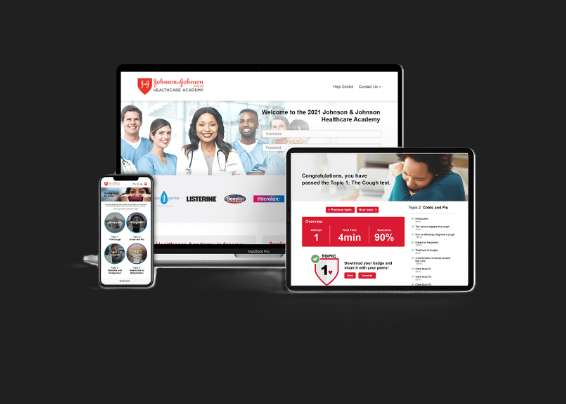EdTech
Learnings from e-learning for 2025
Organisations can use this strategy to level up employee development and retention, writes MICHAEL GULLAN, CEO of G&G Advocacy.
As many as 90% of organisations are concerned about employee retention and use corporate learning as an effective retention strategy, according to the LinkedIn Workplace Learning Report (LWLR) 2024.
With the right strategy, employee development can lead to enhanced performance and, ultimately, business growth. Growth energises employees and inspires them to stay and grow with the organisation.
These are the key eLearning trends to look out for in 2025:

Photo supplied
- Support business strategy
In 2025, eLearning programs will be used successfully for much more than onboarding and compliance. More organisations will use eLearning to develop their workforce and other stakeholders (such as professional influencers, distribution partners, resellers, and franchises) into a robust unified force that drives the organisation toward its goals. The most crucial insight to take into 2025 is that eLearning has gone beyond a tool for effective onboarding, compliance, and process training to a strategic investment that, when aligned with the business strategy, can propel a business to reach and even surpass its goals.
- A place at the table
Given the positive impact that organization-wide employee development can have on the bottom line, it’s becoming an essential C-suite conversation. According to the LinkedIn Executive Confidence Index, 90% of global key decision-makers plan to increase their investment in L&D in the next six months.
Company leaders are appreciating the significant return on their eLearning investments, and, in 2025, we can expect more important eLearning conversations at a senior level. Key decision-makers will interrogate and refine their eLearning programs to achieve better outcomes and support their growth strategy.
- Amplify connection and purpose
The LWLR 2024 shows that 70% of employees believe that learning connects them to their organization, and 80% say that learning adds purpose to their work. In 2025, the challenges of dispersed working and diverse teams will continue, and more organisations will use eLearning to strengthen collaboration, create meaning, enhance connections, and build culture. When people learn new skills and grow in their roles, they want to share it with others. Employees empowered with new skills and clarity on the company’s goals will be active collaborators in its success.
- Dynamic and future-facing
The most effective eLearning programs are dynamic and personalised to employees’ skills gaps and career motivations and use the science of adult learning. Additionally, when individual career development aligns with a company’s goals, people and organisations build critical, future-facing skills to navigate constant change. When employees see the value learning adds to their careers and lives, they’re all in.
- Coaching at scale
There’s no denying that coaching and mentoring empowers, builds skills, and progresses employees’ careers. According to LWLR 2024, 47% of organisations believe in and invest in career mentoring and coaching to boost employee retention. eLearning allows organisations to offer coaching, mentoring, and problem-solving support at scale, throughout the organisation, without the burden and drain on managers and leaders. We’ll see more organisations using this strategy in 2025 and beyond.
- Eliminate glass ceilings
Internal mobility is key to retaining and developing good people into star performers. Most HR professionals see the benefits of encouraging employees to learn and stretch into new and different roles.
Employees with nowhere to go within an organisation will look elsewhere. Organisations that encourage internal mobility enjoy far higher retention rates, a more agile workforce, and employees with profound cross-functional knowledge. In 2025, more organisations will look to developing existing employees rather than hiring new talent. Don’t get overwhelmed trying to build the perfect internal mobility program. Start with a hardworking eLearning programme that creates depth in your teams.
- Lean into analytics
To align your learning programs with your business strategy, you need to know how effective your programme is, by course and employee, and how they support your objectives. Real-time data and analytics of your eLearning will be an essential focus in 2025 for many organisations.
The possibilities and trajectory for eLearning within organisations have never been more exciting. 2025 will be the year when eLearning is seen as a strategic investment that fosters a unified workforce aligned with business goals. 90% of leaders plan to maintain or increase investment in eLearning, recognising the substantial ROI. eLearning addresses skills gaps and connects employees with the organisation’s vision. Add coaching and mentoring at scale, and your organisation will benefit from empowered employees, improved retention, and internal mobility. Lastly, granular, real-time analytics will be ever more essential for measuring effectiveness and ROI.


















